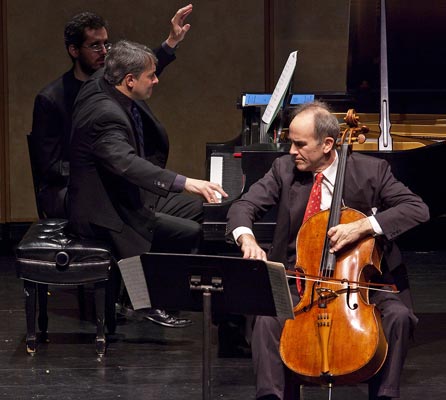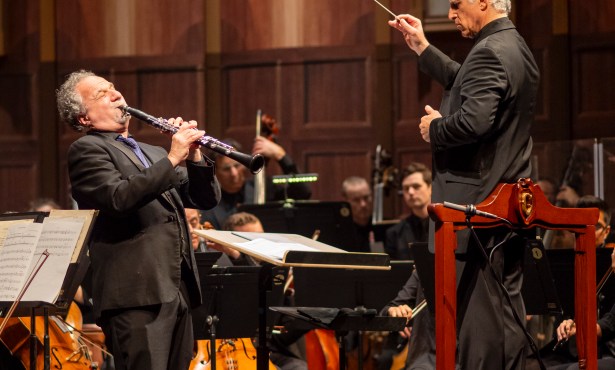Carter Brey and Christopher O’Riley at the Lobero
Cellist and Pianist Explore Music of Strauss, Poulenc, and Chopin

Experienced collaborators cellist Carter Brey and pianist Christopher O’Riley turned out to be deft programmers as well, teasing the hidden genius out of relatively obscure chamber pieces. In the process, they illuminated the mainstream of the standard repertoire by reflection.
The concert opened with the Sonata in F Major, Op. 6 of Richard Strauss. Brey brought out the flowing, song-like aspects of the second movement, “Andante Ma Non Troppo,” and O’Riley made the sophisticated writing for piano sound natural and fully integrated. The overall result was a fresh appreciation for the degree to which Strauss had internalized and even relished the constraints of the traditional sonata form as handed down to him by Mendelssohn and Brahms.
The tall and lean Brey produced a pure and resonant tone that allowed the musicality of the next work, the Sonata FP143 of Francis Poulenc, to outweigh its sometimes-spiky modernity. Its four movements include a middle pair—the “Cavatine” and the “Ballabile”—that were as charming as they were unusual. Sudden pizzicatos that disappear as soon as they are heard, suggestive silences, and growling low notes were all part of the extended musical vocabulary that gave this piece its varying moods and distinctive modern flavor.
The evening’s highlight was the second half, which was devoted entirely to Frederic Chopin’s Sonata in G Minor, Op. 65, CT. 204. Brey and O’Riley were in tremendous sync all night, but they raised their level again for the finale, which showed yet another aspect of Chopin’s genius, this one his mastery of the Germanic forms of development characteristic of the sonata yet far from what one expects where Chopin is concerned. The result is something else again—not a mere exercise in following the principles of Romantic development nor a typically Chopin-esque confection, the last published work of this extraordinary composer exists sui generis. For Brey and O’Riley, this tantalizing musical anomaly became the point of departure for an exploration of collaborative performance on the highest level, giving them the opportunity to express ideas that still lie on the frontiers where generic distinctions and the limits of tradition seem to vanish.



